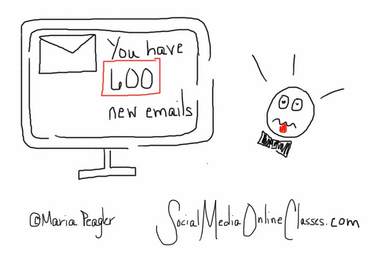Personal to-do lists Events management Task management File tracking Marketing
I’m sure we could find dozens of other uses that people have for email, but the truth of the matter is that emails don’t provide an efficient solution to any of these points. Emails were intended to send messages. They do that extremely well. Have you ever lost an email? Have you ever had an email that has never arrived to its user? No. The only reason why you would have those issues is because you misspelled the email, forgot to CC it to the right people or it landed in the spam box. The system is amazingly reliable across all your devices and applications. You’ve been using it for YEARS–why change?
So, what’s the problem?
144 billion emails were sent last year–per day. The problem, as mentioned above, is that people don’t use emails for just emails. The multiple uses of email have instead created situations such as employees spending 28% of their time on email instead of productive work. In addition to that, it’s usually a great source of distractions, with your aunt sending you pictures of her cat or a friend sending you a YouTube link to an epic fail video, or maybe you check it every fifteen minutes under the guise that it’s good etiquette to reply THAT promptly.
What can you do about it?
Well you could:
Get more organized using labels and filters (but not many email providers give you that option–and mostly it’s the super-organized among us that actually take the time to do that). Create different email addresses for different people, despite the fact that keeping up with them can get annoying (I know–I have more than a dozen email addresses). Sign up on a bunch of different websites/services that promise to do what you normally use your email service for (Which one? And does it really change anything?).
The core thing about email is that it’s still irreplaceable. 2.3 billion + people in the world have an email address. It’s well documented, creating it is extremely simple, and it’s free. What else could you ask for? The bottom line is that complexity causes stress, dissatisfaction and loss of productivity. But because email is so ingrained in our day-to-day existence we can’t imagine working without it. New collaboration tools have to make people feel like they can let go of traditional (yes–traditional!) Internet behavior and maximize the benefits of tools built for to-do lists, tasks, marketing, event managing and so on. Why use a spoon to dig a hole when you can use a shovel?
